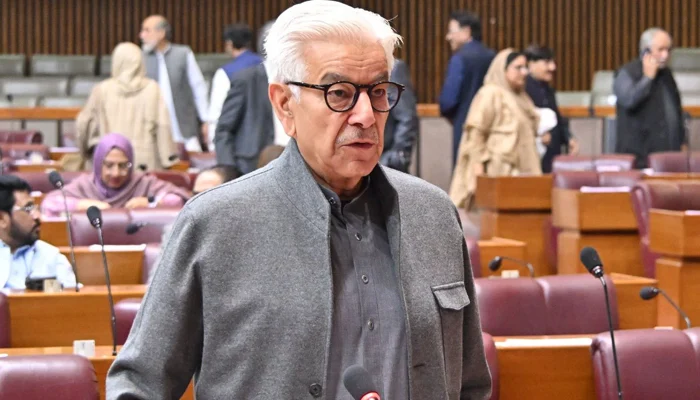Pakistan’s Defence Minister Khawaja Asif has warned that despite the US-brokered ceasefire earlier this year, the threat of another war with India “still persists,” with proxy hostilities intensifying across the region.
Speaking on a private television talk show, Asif said the decades-long proxy conflict between the two nuclear-armed neighbours has never fully ended and has instead escalated in recent years.
“The proxy war has not only continued — it has intensified. Lahore and Rawalpindi have recently experienced explosions linked to these tensions,” Asif said. He traced the origins of proxy warfare to the 1980s, calling it a major tool of modern conflict.
‘Immediate War Risk After May Conflict’
Asif revealed that the likelihood of full-scale war between India and Pakistan was extremely high immediately following the 2025 May conflict.
“After the May engagement, the possibility of another war existed, and that risk has not disappeared,” he said.
He claimed the United States “certified Pakistan’s victory” and intervened diplomatically to prevent further escalation.
Background: May 2025 Four-Day War
The four-day confrontation erupted after India carried out what Pakistan described as unlawful missile strikes inside its territory, killing civilians and security personnel.
Pakistan retaliated by:
- Shooting down seven Indian fighter jets, including Rafale aircraft
- Destroying an Indian S-400 air-defence system
- Launching strikes on more than 20 Indian military sites
The hostilities ceased on May 10 under a ceasefire arrangement facilitated by Washington.
US Report Acknowledges Pakistan’s Battlefield Success
Months later, a report submitted to the US Congress by the US-China Economic and Security Review Commission acknowledged Pakistan’s operational successes and highlighted the combat debut of advanced Chinese weapons, including:
- HQ-9 air-defence systems
- PL-15 air-to-air missiles
- J-10C fighter aircraft
These systems, the report noted, significantly enhanced Pakistan’s military edge during the conflict.
Security Establishment ‘On High Alert’
Khawaja Asif concluded that despite diplomatic cooling-off, tensions remain dangerously high:
“The danger of conflict with India is still very real.”

